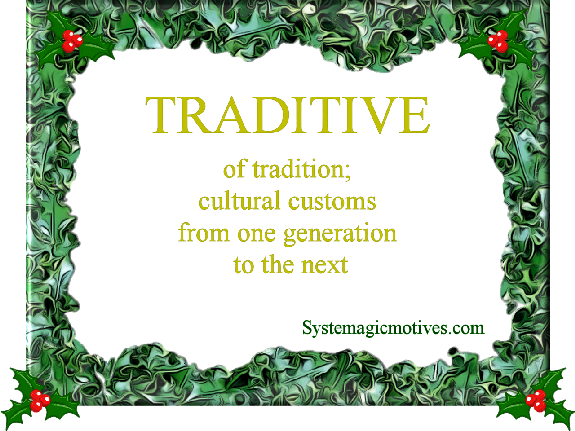

Traditive adj. Of tradition; cutural customs from one generation to the next.
The term "traditive" is relatively rare and often used in specific contexts, particularly in legal and formal settings. It derives from the Latin word "traditio," which means "delivery" or "transfer." In contemporary usage, "traditive" primarily describes something related to or involving the act of transferring or handing over. For instance, in legal contexts, a "traditive" action might refer to the transfer of property or rights from one party to another. This term encapsulates the concept of passing ownership or responsibility and emphasizes the formal process required to complete such transactions.
In a broader sense, "traditive" can also relate to traditions and practices that are handed down through generations. In this context, it describes customs or rituals that are passed on from one generation to another, ensuring cultural continuity and preserving heritage. The concept of "traditive" in this regard underscores the importance of maintaining and respecting established practices and values, which are integral to cultural identity. For example, many societies have "traditive" rituals and ceremonies that play a crucial role in their social fabric, highlighting the ongoing relevance of historical practices.
When used in its proper context, "traditive" adds a layer of precision and formality, particularly in legal, historical, or cultural discussions. Understanding and using "traditive" correctly can enhance clarity in discussions about processes and practices involving the transfer or continuation of elements between parties or generations.
Positive Nouns that Describe People